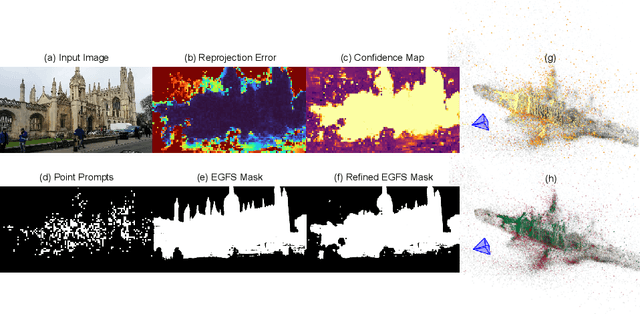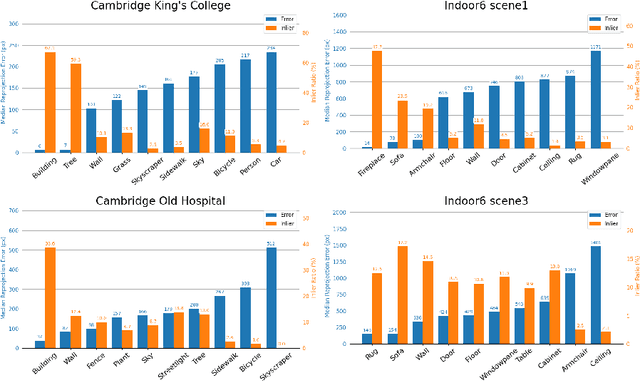Tsung-Chih Chiang
Reprojection Errors as Prompts for Efficient Scene Coordinate Regression
Sep 06, 2024



Abstract:Scene coordinate regression (SCR) methods have emerged as a promising area of research due to their potential for accurate visual localization. However, many existing SCR approaches train on samples from all image regions, including dynamic objects and texture-less areas. Utilizing these areas for optimization during training can potentially hamper the overall performance and efficiency of the model. In this study, we first perform an in-depth analysis to validate the adverse impacts of these areas. Drawing inspiration from our analysis, we then introduce an error-guided feature selection (EGFS) mechanism, in tandem with the use of the Segment Anything Model (SAM). This mechanism seeds low reprojection areas as prompts and expands them into error-guided masks, and then utilizes these masks to sample points and filter out problematic areas in an iterative manner. The experiments demonstrate that our method outperforms existing SCR approaches that do not rely on 3D information on the Cambridge Landmarks and Indoor6 datasets.
Vision based Virtual Guidance for Navigation
Mar 05, 2023



Abstract:This paper explores the impact of virtual guidance on mid-level representation-based navigation, where an agent performs navigation tasks based solely on visual observations. Instead of providing distance measures or numerical directions to guide the agent, which may be difficult for it to interpret visually, the paper investigates the potential of different forms of virtual guidance schemes on navigation performance. Three schemes of virtual guidance signals are explored: virtual navigation path, virtual waypoints, and a combination of both. The experiments were conducted using a virtual city built with the Unity engine to train the agents while avoiding obstacles. The results show that virtual guidance provides the agent with more meaningful navigation information and achieves better performance in terms of path completion rates and navigation efficiency. In addition, a set of analyses were provided to investigate the failure cases and the navigated trajectories, and a pilot study was conducted for the real-world scenarios.
 Add to Chrome
Add to Chrome Add to Firefox
Add to Firefox Add to Edge
Add to Edge